The Entrepreneur
CarePay Ltd: Transforming Healthcare Access in Kenya
CarePay’s journey started when Michiel Slootweg and Kees van Lede, both with expertise in finance and business, saw the vast potential of mobile technology in Kenya, a country with one of the highest mobile phone usage rates in Africa. Inspired by the success of M-PESA, Kenya’s revolutionary mobile money platform, they identified an opportunity to bring this innovation to healthcare.
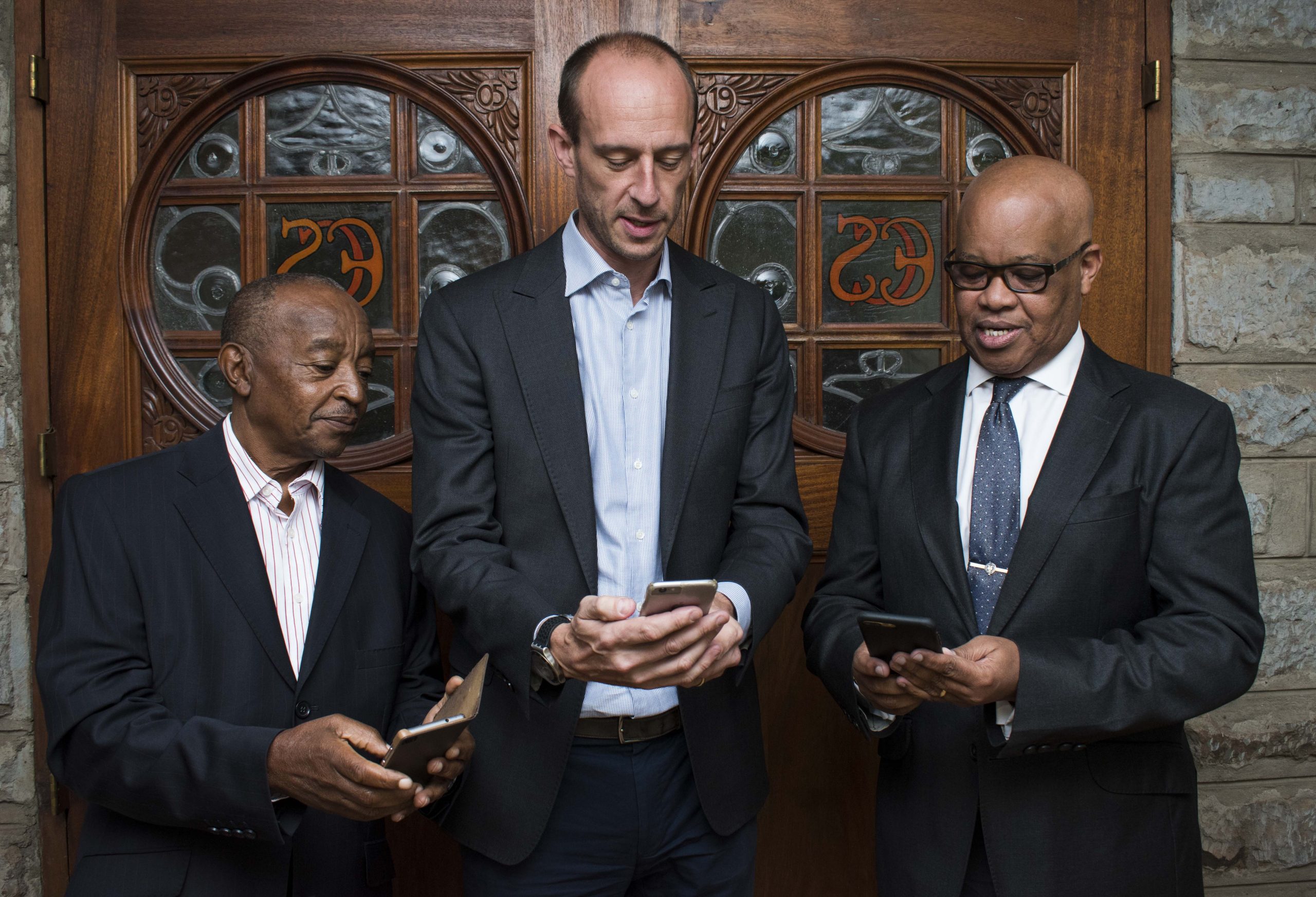
Discover how CarePay Ltd, founded by Michiel Slootweg and Kees van Lede, revolutionizes healthcare in Kenya with a Mobile Health Wallet for accessible care.
By Charles Wachira
In 2015, Michiel Slootweg and Kees van Lede embarked on a bold mission to transform how healthcare is accessed in Kenya.
As seasoned entrepreneurs with a passion for innovative solutions, they co-founded CarePay Ltd, a company registered that same year with an ambitious vision: to leverage mobile technology to make healthcare affordable and accessible to all Kenyans.
At the core of their idea was a Mobile Health Wallet that would empower millions to access healthcare services with ease.
The Birth of CarePay Ltd
The story of CarePay began when Slootweg and van Lede, both with backgrounds in finance and business, recognized the enormous potential of mobile technology in a country where mobile phone penetration was among the highest in Africa.
Kenya’s groundbreaking mobile money platform, M-PESA, had already revolutionized how people sent and received money, and they saw an opportunity to extend this innovation to healthcare.
Reflecting on their motivations, Michiel Slootweg stated, “We saw firsthand how mobile technology could change lives. In Kenya, where many people lacked access to traditional banking and insurance, we believed that the same technology could revolutionize healthcare access.”
With a shared vision of bridging the gap between healthcare providers and patients, CarePay Ltd was created as a platform that allows users to save, manage, and spend funds specifically on healthcare through their mobile phones. The goal was simple: make healthcare more affordable, efficient, and inclusive through the use of digital technology.
Backed by Powerhouse Investors
To bring their vision to life, CarePay received early support from two major investors—M-PESA Foundation and IFHA (Investment Fund for Health in Africa).
The involvement of the M-PESA Foundation was particularly significant, as it provided both financial backing and a connection to Kenya’s existing mobile infrastructure. IFHA, on the other hand, brought expertise in healthcare investments across Africa, ensuring that CarePay’s model was both scalable and sustainable.
Kees van Lede emphasized the importance of these partnerships: “We knew that to create a lasting impact, we needed partners who understood both the healthcare landscape and the power of mobile technology. Our collaboration with M-PESA Foundation and IFHA was crucial in refining our model.”
Filling the Void in Healthcare Access
The CarePay platform works by allowing users to save money on their phones specifically for healthcare services.
This “Mobile Health Wallet” acts as a digital account where patients, insurers, or donors can deposit funds. These funds can then be spent at partnered healthcare facilities, making healthcare more accessible for individuals who might not have immediate access to cash.
This system provided a significant solution for Kenya’s informal sector workers, who often lacked traditional health insurance.
For many, sudden healthcare needs would result in financial strain, as out-of-pocket costs for medical care were prohibitive. CarePay’s platform allowed users to accumulate savings, which could be used at any time, reducing financial barriers to accessing medical services.
“The Mobile Health Wallet fills a critical gap in healthcare financing. It empowers individuals to take control of their health expenses,” Slootweg explained. “By creating a system where savings can be directly used for healthcare, we eliminate the anxiety of sudden medical costs.”
Challenges Encountered on the Journey
Despite their success, the journey to building CarePay was not without challenges. Both co-founders faced obstacles, including regulatory hurdles and the need to build trust among users who were unfamiliar with digital healthcare financing.
Van Lede shared, “One of the biggest challenges was educating the population about our service. Many people were skeptical about using mobile technology for healthcare, especially in rural areas. We had to work hard to demonstrate the value and security of our platform.”
Entrepreneurial Background and Entry into Kenya
Before founding CarePay, Michiel Slootweg had significant experience in finance and technology, working with various startups in Europe that focused on mobile and digital solutions.
Kees van Lede had a background in healthcare investments, which equipped him with insights into the complexities of healthcare systems and the financial challenges they faced.
Their journey to Kenya began with a simple observation: “We saw an opportunity to leverage our expertise in technology and healthcare to create meaningful change,” Slootweg noted. “Kenya was already a leader in mobile innovation, and we believed that together, we could make a difference.”
The Impact of CarePay
Since its launch, CarePay has made a significant impact on healthcare access in Kenya.
By 2024, the company had enrolled millions of Kenyans, providing them with a reliable and efficient way to save for healthcare expenses and manage their insurance coverage.
The company also played a critical role during the COVID-19 pandemic by ensuring that people could access care and testing services even during times of financial hardship.
Beyond individual healthcare savings, CarePay worked closely with donors and aid organizations to provide healthcare subsidies for vulnerable populations.
This ensured that even those who could not afford to save for healthcare could still access essential services.
A Vision for the Future
Under the leadership of Michiel Slootweg and Kees van Lede, CarePay continues to grow and evolve. The company’s ambition to provide universal healthcare access is driving its expansion into other African markets, with plans to extend its platform to other countries where healthcare access is limited.
CarePay’s founders envision a future where no one is left behind due to financial barriers in healthcare.
By harnessing the power of mobile technology, Slootweg and van Lede have pioneered a model that can be replicated across the continent, ensuring that millions more can access the care they need, when they need it, without the fear of financial ruin.
Conclusion
CarePay Ltd is a remarkable story of how entrepreneurial vision, technological innovation, and strategic partnerships can come together to solve one of the most pressing issues of our time—affordable healthcare.
Through their Mobile Health Wallet, Michiel Slootweg and Kees van Lede have created not just a company but a movement toward universal health care access, impacting lives across Kenya and setting the stage for a healthier Africa. As Slootweg aptly puts it, “We are just getting started. The future is bright for CarePay, and we are committed to making healthcare accessible to everyone.”
Keywords:CarePay Ltd:Mobile Health Wallet:Healthcare access Kenya:Michiel Slootweg:Kees van Lede
She Business
Bethlehem Tilahun Alemu: From Ethiopian Artisan to Global Icon

: Discover how Bethlehem Tilahun Alemu built SoleRebels into a global,
sustainable footwear brand, overcoming challenges and transforming Ethiopian
craftsmanship.
Bethlehem Tilahun Alemu’s story begins in Zenabwork, a modest village on the outskirts
of Addis Ababa, Ethiopia. Growing up, she watched her community struggle with unemployment and poverty, despite a rich heritage of artisanal skills that remained largely untapped.
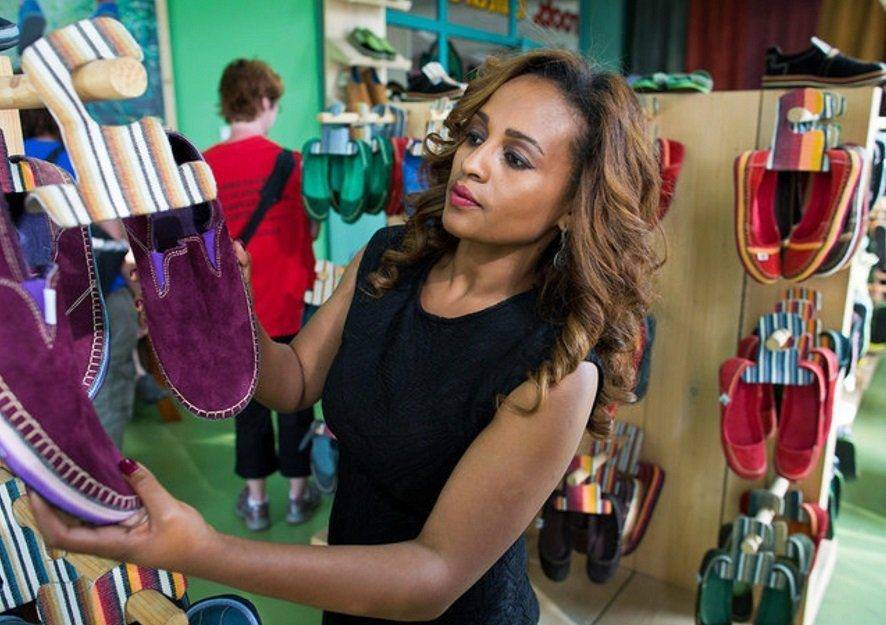
Fueled by determination and a desire to transform her surroundings, Bethlehem
embarked on a journey that would redefine African entrepreneurship and put Ethiopia
on the global map.
Her creation, SoleRebels, isn’t just a footwear brand. It’s a movement—an embodiment
of sustainability, culture, and empowerment.
A DREAM WOVEN WITH TRADITION
In 2005, Bethlehem founded SoleRebels with a simple yet powerful idea: to turn
Ethiopia’s rich artisanal craftsmanship into eco-friendly, globally competitive footwear.
Inspired by traditional “selate” shoes—made from recycled tyres—she envisioned a
brand that blended cultural authenticity with modern design.
She recruited local artisans, many of whom were unemployed, and encouraged them to
innovate while preserving traditional techniques.
Every pair of shoes was a masterpiece, crafted from hand-spun cotton, organic
materials, and repurposed car tyres. Bethlehem’s concept was groundbreaking: a product that told a story while making a global impact.
STARTING FROM SCRATCH
Like many entrepreneurs, Bethlehem’s initial challenge was capital.
With no access to bank loans or large investors, she relied on personal savings and
modest contributions from her family.
Slowly but surely, she built her business, reinvesting profits into training workers and
improving production tools. International grants and initiatives like the SEED Initiative later recognized the potential of her venture, providing additional support.

The early days weren’t easy. Artisans lacked modern tools, and accessing raw
materials was an uphill battle. But Bethlehem, known for her tenacity, tackled these challenges head-on. She developed partnerships with local suppliers to ensure a consistent supply of quality materials and invested in upskilling her workforce.
Breaking into the global market presented another hurdle. Competing against established brands seemed daunting, but Bethlehem found her edge: sustainability and ethical production.
In an era when consumers were becoming eco-conscious, SoleRebels’ ethos of fair wages, recycled materials, and cultural storytelling resonated deeply.
BUILDING A GLOBAL EMPIRE
Fast forward to today, and SoleRebels has a presence in over 30 countries, with
flagship stores in cities like San Francisco, Tokyo, and Barcelona.
It is also the first African footwear brand to be certified by the World Fair Trade
Organization (WFTO)—a testament to Bethlehem’s commitment to doing business the
right way.
Her company directly and indirectly employs over 1,200 people, making it one of
Ethiopia’s largest employers in the artisan sector.
Workers earn more than three times the industry average, a policy Bethlehem takes
immense pride in. “When we pay people well, we don’t just change lives—we transform
communities,” she says.
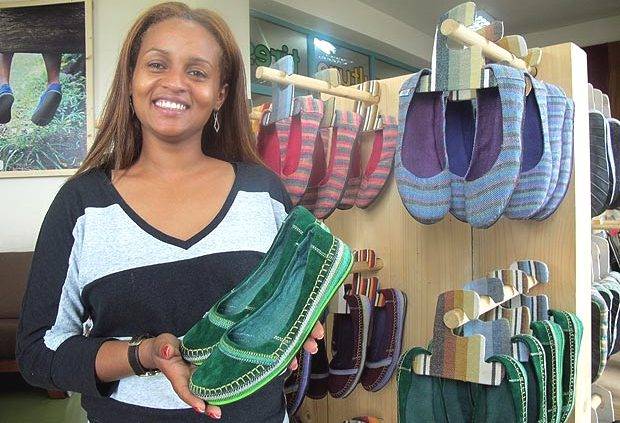
MENTORS AND INSPIRATIONS
Bethlehem often credits her late grandfather, a farmer and community leader, as her
greatest mentor.
His work ethic and deep belief in the power of local communities shaped her vision. She
also draws inspiration from global leaders, including Ethiopian Prime Minister Abiy
Ahmed, whose focus on innovation and economic growth aligns with her goals.
RISING ABOVE CHALLENGES
Bethlehem’s entrepreneurial journey has been marked by resilience. When production
scaled up, she faced supply chain disruptions that threatened deadlines. Her solution?
Cultivate long-term relationships with reliable local suppliers and diversify material
sources.
Entering new markets came with its own set of obstacles. Competing against
established brands requires a unique value proposition.
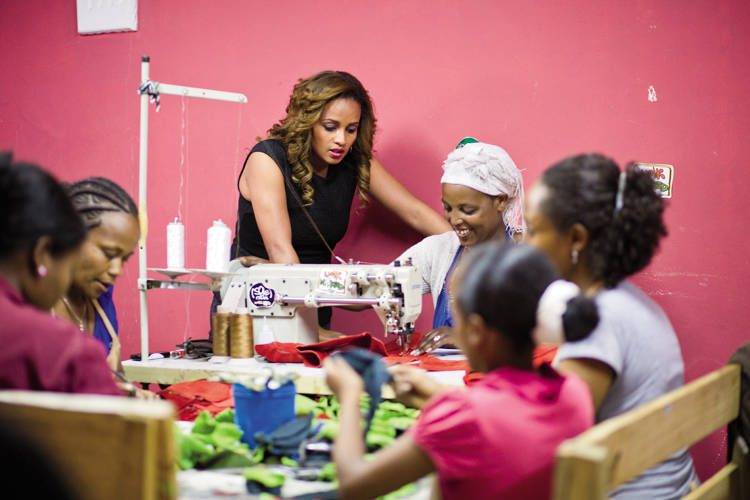
SoleRebels offered more than shoes—it offered a story: a product steeped in Ethiopian
culture, made sustainably, and crafted ethically.
VISION FOR THE FUTURE
Bethlehem isn’t slowing down. Her plans include:
- ● Expanding SoleRebels’ retail presence in Europe and Asia.
- ● Introducing sustainable clothing lines.
- ● Partnering with global brands to promote eco-friendly production in Africa.
Beyond SoleRebels, Bethlehem has a broader mission: to inspire a new narrative for
African entrepreneurship. She wants to show the world that Africa isn’t just a consumer
market but a hub for innovation and excellence.
CONCLUSION: WALKING THE TALK
Bethlehem Tilahun Alemu has redefined what it means to be an entrepreneur. From
Zenabwork’s dirt roads to the global stage, she has shown that success doesn’t come
from resources alone—it comes from vision, grit, and a deep connection to one’s roots.
With SoleRebels, Bethlehem has not only created a thriving business but a model for
how sustainable, ethical enterprises can transform communities. As she continues to
dream big, her footsteps pave the way for the next generation of African changemakers.
She Business
Joyce Akinyi Convicted: Heroin Smuggling Case Exposed

: Kenyan businesswoman Joyce Akinyi faces life imprisonment after being found
guilty of smuggling heroin worth US$ 34,483. Her history with crime has now
unravelled.
Joyce Teresia Akinyi’s story is one of dramatic highs and lows—rising from a successful
businesswoman to being convicted of a large-scale heroin smuggling operation.
With ties to international criminal networks, high-profile relationships, and repeated run-
ins with the law, Akinyi’s life has been marked by controversy and legal battles.
THE HIGH LIFE: BUSINESS AND INFLUENCE
Akinyi first gained prominence as the upscale Deep West Resort owner in Lang’ata,
Nairobi. Known for her affluent lifestyle, she mingled with Kenya’s elite and maintained
significant business interests.
However, behind the glamorous facade lay a darker world of alleged criminal activity.
Her personal life was equally turbulent. In 1998, she met Nigerian businessman Anthony Chinedu, and the couple had two children before formalising their union.
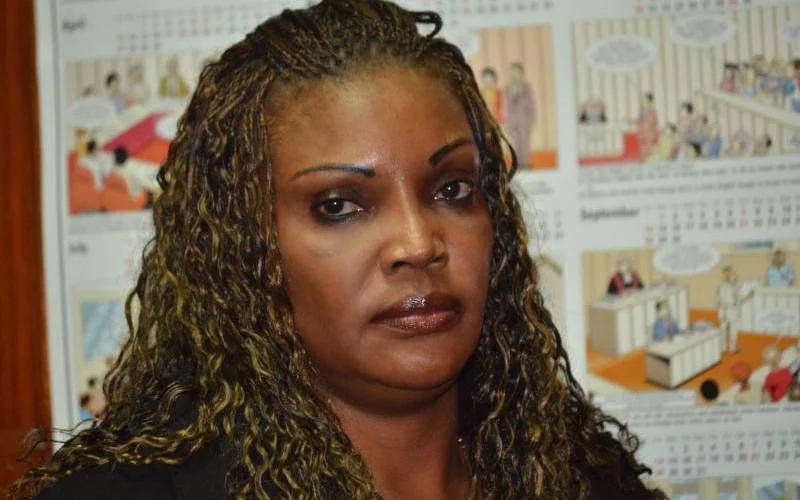
Their relationship was rocky, marked by numerous arrests on drug trafficking charges.
In 2013, Chinedu was deported from Kenya after authorities seized drugs in his
possession, a move that further exposed Akinyi to public scrutiny.
A HISTORY OF LEGAL TROUBLES
Over the years, Akinyi faced repeated allegations of drug trafficking. Her name became
prominent in 2008 when she was arrested in New Delhi, India, alongside former
Budalang’i MP Raphael Wanjala.
Authorities detained the pair with undeclared cash worth Sh7.59 million, suspected to
be linked to drug deals. Although released after intervention by the Kenyan government, the incident marked the start of a string of legal troubles for Akinyi.
In 2013, she and Wanjala were arrested again on the Nairobi-Namanga highway with a
suspicious white powder. Although they claimed it was corn flour, suspicions persisted,
and Akinyi’s criminal associations deepened.
THE TURNING POINT: CONVICTION FOR HERION SMUGGLING
Akinyi’s criminal activities reached a dramatic conclusion in 2019 when a police raid on
Deep West Resort uncovered 2kg of heroin worth Sh5 million hidden in a shoe rack.
The Anti-Narcotics Directorate linked the operation to an international smuggling
network coordinated by Akinyi.
The Jomo Kenyatta International Airport Tribunal found Akinyi guilty under Article
4(a) of the Narcotic Drugs and Psychotropic Substances Control Act, which
mandates life imprisonment for drug trafficking.
The court heard compelling evidence, including photographs of heroin wrapped in white
tape, voice recordings coordinating smuggling activities, and the discovery of a Tabita
Digital Scale used to weigh drugs.
Akinyi’s co-defendants, Paulin Kalala Musankinshay and Peres Adhiambo, were
similarly implicated. Evidence also revealed that Akinyi used multiple fake passports, including a Congolese passport in the names of “Mape Marline Kambura” and “Raha Eveline
Kambere,” enabling her to operate under different aliases.
FINANCIAL CRIMES AND ASSET RECOVERY
Beyond drug trafficking, Akinyi’s wealth came under scrutiny. In 2021, she lost two
luxury vehicles worth Sh20 million to the State, deemed proceeds of crime.
Investigations by the Asset Recovery Agency revealed that Akinyi deposited
suspiciously large sums ranging from Sh60,000 to Sh20 million into various bank
accounts. Her real estate investments—villas built and rented out—further indicated
illicit income sources.
THE END OF THE ROAD
On December 10, 2024, Akinyi faces sentencing, which could include life
imprisonment and a Sh5 million fine. Her fall from grace highlights the dangers of
unchecked ambition and illegal pursuits. Magistrate Njeri Thuku, who presided over the
case, dismissed Akinyi’s defence that the drugs were planted by her estranged husband
Chinedu, calling it baseless.
CONCLUSION
From her meteoric rise as a business mogul to her conviction as a drug trafficker, Joyce
Akinyi’s life is a cautionary tale of how power, wealth, and crime can intertwine.
Her story also underscores Kenya’s ongoing battle with drug trafficking and the far-reaching
consequences of organised crime. For Akinyi, the glitz and glamour of her former life
have now given way to the stark reality of justice.
Nb: Exchange rate 1 USD = 145 Ksh
The Entrepreneur
Miss Rwanda 2022, Divine Muheto, Faces Drink-Driving Scandal

: Miss Rwanda 2022, Divine Muheto, was arrested for drink-driving, fined, and
detained after a car crash. She expresses regret and seeks forgiveness for her
actions.
From Beauty Queen to Legal Controversy
Divine Muheto, 21, crowned Miss Rwanda 2022, rose to prominence as a symbol of
beauty and ambition. She always believed she had what it took to achieve her childhood
dream of becoming a beauty queen.
Her journey began after high school when she entered the Miss Rwanda competition,
ultimately claiming the coveted title.
Reflecting on her success, she once said, “When you fear, you can’t make anything
different in life, but when you are fearless, a lot of positive things come your way.”
Legal Troubles in 2024
However, her reign as Miss Rwanda has been overshadowed by controversy. In late
2024, Muheto was arrested following a drink-driving incident in Kigali.

Reports from the Rwanda National Police (RNP) confirmed that she was caught driving
under the influence of alcohol without a valid license, resulting in a crash that destroyed
public infrastructure, including a street light pole and palm trees.
The police also noted that Muheto fled the scene of the accident. She was subsequently
fined 190,000 Rwandan francs (approximately $140) and detained.
This incident marked a troubling pattern, as the beauty queen had previously faced
similar charges in September 2023, when she crashed her car into a building while
driving drunk.
Silent Remorse and Public Engagement
Muheto, the daughter of Assistant Commissioner of Police Francis Muheto, has
remained largely silent in the media following her arrest, though her legal team has
expressed that she deeply regrets her actions and has sought forgiveness.
Despite this, she continues to be a public figure, engaged in various activities. Her legal troubleshave raised concerns, but she remains resolute in her belief that life’s challenges present growth opportunities.

Inspirational Messages and Support System
While her parents have largely stayed out of the spotlight, Divine Muheto has continued
to inspire many young people in Rwanda, emphasising resilience and self-improvement.
She once said, “I knew I had what it takes to the last dot,” and even in the face of
adversity, she strives to move forward, learning from her mistakes and striving to make
a positive impact.
-

 Politics5 months ago
Politics5 months agoFred Okengo Matiang’i vs. President William Ruto: A 2027 Election Showdown
-

 Business & Money10 months ago
Business & Money10 months agoEquity Group Announces Kshs 15.1 Billion Dividend Amid Strong Performance
-

 Politics4 months ago
Politics4 months agoIchung’wah Faces Mt. Kenya Backlash Over Gachagua Impeachment Support
-

 Politics6 months ago
Politics6 months agoPresident Ruto’s Bold Cabinet Dismissal Sparks Hope for Change
-

 Politics7 months ago
Politics7 months agoPresident Ruto’s Lavish Spending Amid Kenya’s Economic Struggles Sparks Outrage
-

 Politics6 months ago
Politics6 months agoJohn Mbadi Takes Over Kenya’s Treasury: Challenges Ahead
-

 Business & Money2 months ago
Business & Money2 months agoMeet Kariuki Ngari: Standard Chartered Bank’s new CEO of Africa. What’s Next?
-

 Politics7 months ago
Politics7 months agoKenya Grapples with Investor Confidence Crisis Amid Tax Protest Fallout





